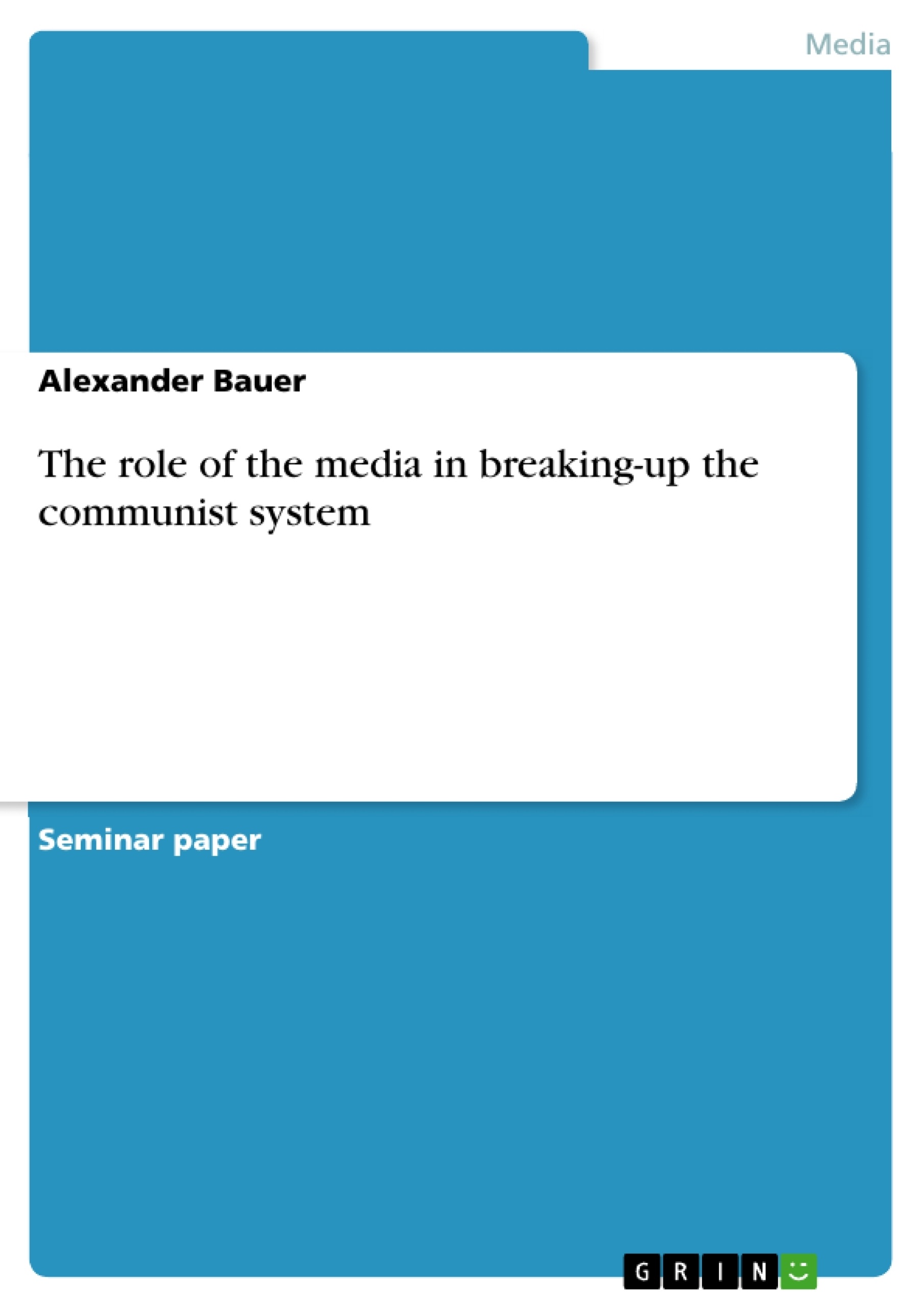“A pen can be more powerful than a sword!”. This simple phrase shows the
capacity of media. As long as we can think about the meaning of media it was
used by political systems to support their power. Media can be used to give the
people a special way of thinking, but it can also be a free tool to support a free
thinking about affairs. With modern technology in the beginning of the 20th
century people were confronted with mass media for the first time. The states in
the second World War used the media to spread information – it did not matter if
the information were wrong or false as long it secured the support of the
population: Propaganda was born. The last Soviet leader, Mikhail Gorbachev,
also discovered the power of the media. He tried to revamp the Soviet Union by
allowing the media a greater range of freedoms under his policy of glasnost. But
as he and the world soon discovered, the power of accurate information delivered
in a timely fashion to those who needed it soon overwhelmed the barriers he had
hoped to maintain. The destruction of communism and of the Soviet empire soon
followed.
Inhaltsverzeichnis (Table of Contents)
- Introduction
- The soap-opera capitalism
- Revolution through information
- Information is power
- Conclusion
Zielsetzung und Themenschwerpunkte (Objectives and Key Themes)
This essay aims to explore the critical role of media in the dismantling of the communist system, particularly focusing on the East German context. The author examines how media, ranging from television programs to news coverage, influenced public perception of both capitalism and the communist regime.
- The influence of western media on public perceptions of capitalism in communist states.
- The impact of information access on societal transformations and revolutions.
- The role of media in shaping public opinion and challenging totalitarian regimes.
- The significance of free press as a cornerstone of democratic values and freedoms.
Zusammenfassung der Kapitel (Chapter Summaries)
- Introduction: The essay introduces the topic and emphasizes the power of media, illustrating its potential to shape public discourse and influence political systems. It highlights the evolution of media usage, from propaganda in World War II to Gorbachev's glasnost policy and its unintended consequences in facilitating the demise of the Soviet Union.
- The soap-opera capitalism: This chapter delves into the impact of Western television programs, especially soap operas, on East German society. The author argues that these programs provided a seemingly idyllic portrayal of life in the West, prompting a reevaluation of the perceived shortcomings of the communist system.
- Revolution through information: Focusing on the East German experience, the chapter examines how access to Western media provided critical information about the realities of life in capitalist societies. The author asserts that this information fueled aspirations for change and played a significant role in the eventual collapse of the communist regime.
Schlüsselwörter (Keywords)
The essay revolves around the key themes of media influence, political change, and the role of information in shaping public opinion. It delves into the impact of Western media on the perception of capitalism in communist societies, explores the relationship between media access and societal transformations, and emphasizes the significance of free press in promoting democracy and individual freedoms.
Frequently Asked Questions
What was the role of media in the collapse of communism?
Media acted as a powerful tool for free thinking, delivering accurate information that challenged the barriers maintained by totalitarian regimes.
What was Mikhail Gorbachev's "glasnost" policy?
Glasnost was a policy of increased openness and transparency, allowing the media greater freedoms, which ultimately contributed to the demise of the Soviet Union.
What is "soap-opera capitalism"?
It refers to the impact of Western TV programs like soap operas on East Germans, which presented an idyllic image of capitalism and fueled the desire for change.
How did information access lead to revolution?
Access to Western media provided critical information about the realities of capitalist societies, undermining state propaganda and empowering citizens to seek political transformation.
Why is the phrase "the pen is mightier than the sword" used?
It illustrates the capacity of media and information to overwhelm military or political power through the spread of ideas.
What was the role of propaganda in the 20th century?
During the World Wars, states used mass media to spread information, regardless of its truth, to secure the population's support and power.
- Quote paper
- Dipl-Betriebswirt (FH) Alexander Bauer (Author), 2002, The role of the media in breaking-up the communist system, Munich, GRIN Verlag, https://www.grin.com/document/177462



